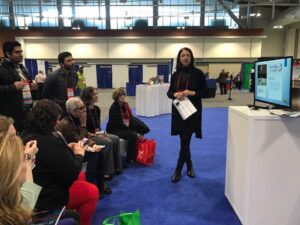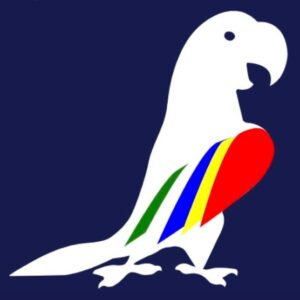Blog
Project Director: Margherita Berti, University of Arizona These resources provide language educators with pedagogical strategies and practical suggestions for implementing social networking sites (SNSs) and social media for intercultural competence in beginner and intermediate FL courses. SNSs offer a great amount of authentic digital materials and provide opportunities for meaningful and contextualized communication. This modern resource assists teachers interested in integrating and exploiting SNSs in their own language courses. Three platforms, Facebook, Instagram, and Twitter, were evaluated for classroom and...
CERCLL is Inviting applications for the 2020 CERCLL Graduate Fellow program. Application deadline: March 4, 2020. The CERCLL Graduate Fellows Program is a one-semester professional development opportunity for foreign language GATs at the University of Arizona. Fellowships are intended to support work on projects related to CERCLL’s mission as a national language resource center. The current call for applications is for fellowships to be granted for one semester in Fall 2020 or Spring 2021. Fellowships are the equivalent of a...
Intercultural Competence Conference Project Directors: Beatrice Dupuy and Chantelle Warner (UA).In collaboration with: the Interdisciplinary Ph.D. Program in Second Language Acquisition and Teaching (SLAT), CMES , CIUA, COH, and SBS at the UA; and several other Language Resource Centers: CALPER, Center for Advanced Research on Language Acquisition (CARLA), National Foreign Language Resource Center (NFLRC) and CASLS. This project is a continuation of a successful biennial conference previously hosted by CERCLL (https://cercll.arizona.edu/projects/icconference). The conference series serves three key purposes: (1) to...
If you are going to the ACTFL convention in Washington DC, be sure to visit the Language Resource Centers‘ booth in the exhibit Hall, where you will find a plethora of information about resources and opportunities made available by the sixteen LRCs across the nation. Also consider attending these presentations by faculty and students at the University of Arizona, and others where CERCLL resources and collaborations are featured. (Find the abstracts in the ACTFL online searchable program.) Friday, November 22...
As an extension of the Film Clips for Foreign Language Culture and Literacy project, Dr. Mark Kaiser (Associate Director of the Berkeley Language Center at the University of California Berkeley) considers the affordances of the film clip in the foreign language curriculum in this webinar. It is divided into three sections. Part 1 considers film as one genre of video texts and the advantages that film presents vis-à-vis other genres of video texts. Part 2 looks at the role that...
Project Director: Wenhao Diao, University of Arizona. In conjunction with the University of Arizona’s Department of East Asian Studies. Free modules for teachers and students to use as supplementary resources for the learning and teaching of Chinese. These materials are based on Chinese L2 learners’ actual engagement in authentic language use outside of the classroom, and are focused on recurring topics and patterns of organization in conversations between American study abroad students and their Chinese peers in the dormitory (the Dorm...
Project Directors: Liudmila Klimanova, University of Arizona; with Shannon Donnally Spasova, Michigan State University The LLC COMMONS is a web portal prototype for open source materials for online and hybrid use, built to respond to a national survey of online course offerings nationwide in Russian and Slavic Studies. The portal features: Searchable library of online authentic materials for teachers of Slavic languages (categorized per linguistic topic and level, including an internal search engine); Repository of fully developed interactive online modules\activities\media...
Project Director: Shelley Staples, University of Arizona Learner corpora can support exciting new SLA research and applications to language teaching. Although there are numerous learner corpora of English, less commonly taught languages still lack resources of this sort to support delivery of “high-quality, pedagogically sound, and cost effective instruction”. The MACAWS project has created a digital resource and online platform where researchers and instructors will have access to an online repository of students’ assignments (texts, spoken discourse, and multimedia products such...
CERCLL is leading a new initiative on campus in this series of events and professional learning communities for the University of Arizona’s faculty, administrators and graduate students to explore today’s best practices and models for foreign language, literature and culture departments. We are hosting the launch event on Friday, September 27, 2019 (2:00-5:00 pm, with reception following) in the Student Union. It will feature world-renowned speakers who have a record of innovative program development, and who will share transdisciplinary initiatives...
Our students live in a global world. The opportunities we offer through literature in our classrooms can invite them into the richness of cultural diversity and global communities. To globalize the text exemplar lists included in standards documents that guide instruction in many states and countries, we developed global book lists of fiction and nonfiction books organized by grade level bands and measures of complexity. These lists include books paired by theme and complexity with the exemplars from Common Core...










